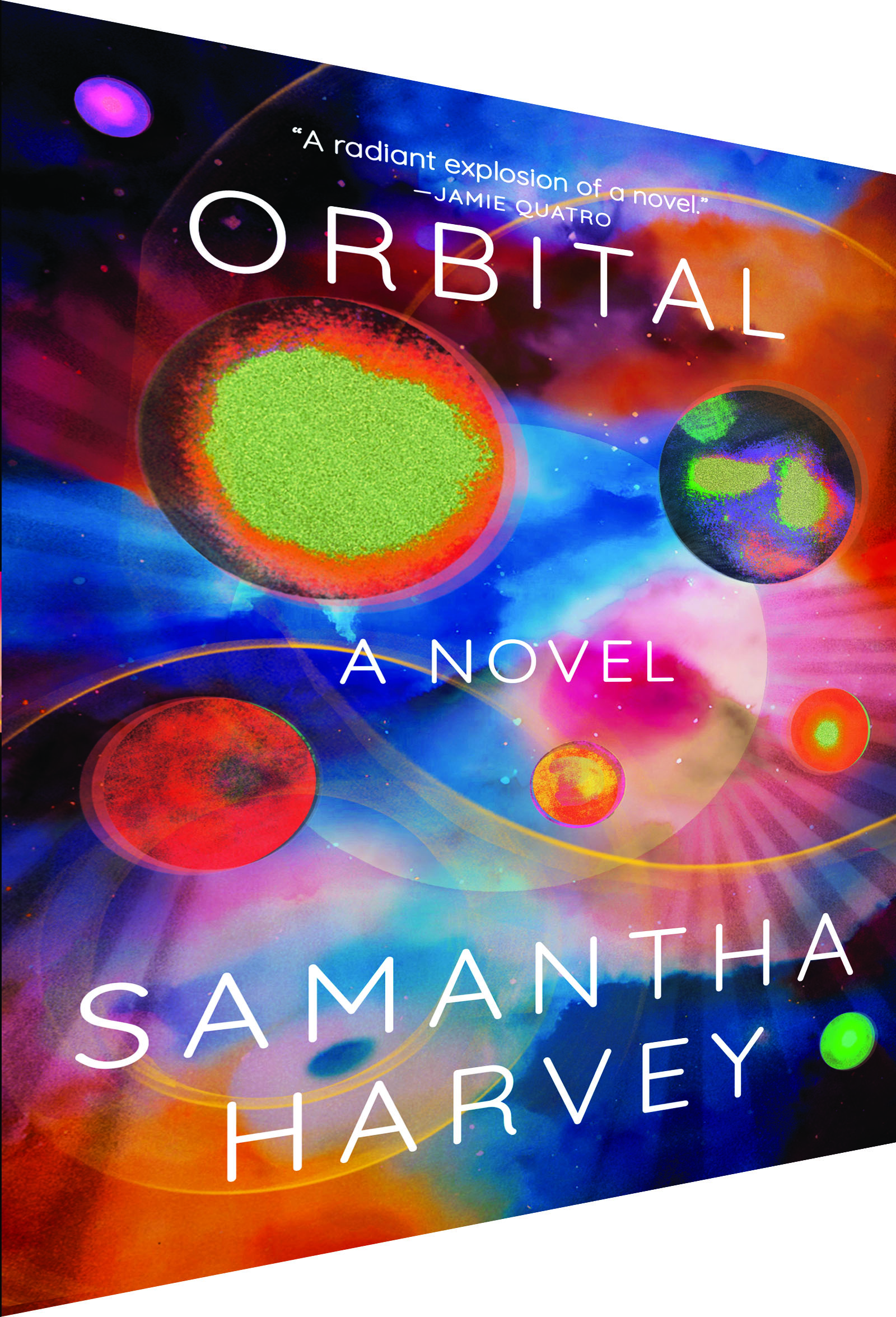
Samantha Harvey
Penguin random house
Rs.299 Pages 136
This 2024 Booker Prize winner novella offers readers a unique perspective of Mother Earth who provides homo sapiens life and nurturance
Samantha Harvey’s acclaimed 2024 Booker-winning novel Orbital is timely. This speculative fiction foretold the suspension in outer space of America’s astronauts Sunita Williams and Butch Wilmore for nine months. Uncannily in Orbital, four astronauts and two Russian cosmonauts are designated to live for months in outer space conducting experiments.
The central elements of this work of contemporary fiction are six disparate individuals who inhabit a space station hurtling through cosmic space in daily orbit around the earth. Twenty-four earth hours calculated as sixteen orbits of ninety minutes each translate into an ‘earth-day’ gives this slim volume a semblance of structure. For the scientifically uninitiated, the ascending and descending orbits are mapped in an introductory diagram that details technology challenges confronting human beings suspended in a spacecraft where “beyond a skin of metal the universe unfolds in simple eternities”.
While the “centre drifts” and “space shreds time to pieces”, national borders turn fuzzier and civilizations fall apart, two women and four men manoeuvre weightlessness and “sardine living”, trying to live out earth-lives in the context of their own conflicting passions, to contribute to human scientific knowledge.
By forgoing plot, the narrative of Orbital simulates the repetitive, cyclical orbits of the space station hurtling through intergalactic space. The transnational crew — Shaun from USA; Chie, pure Japanese; Nell, unabashedly British; Pietro, a mindful Roman Italian and Anton inhabiting the Russian module, form a strange “floating family”. Curiously, this disparate family functions as a unit within “a complex life-support machine” though once they land on Earth, they will become strangers again. The non-existent plot ably supports a diverse band of characters bound together for space exploration, each with personal back-stories that reach into their childhoods and lives as earthlings.
The individuals suspended inside the shuttle go about their daily chores and experiments with meticulous diligence while adhering to boring routines and schedules. Observation and experiments with microbes, rats and one’s own bodies continue to ignite their scientific professionalism.
But as humans invested with emotions, ideas and reflection, they are inadequately developed as fictional characters, which is not the point of the book. As persona, they remain metaphorically sealed in their respective sleeping bags in compartments, forcibly sensitising themselves to repetitive diurnal and nocturnal cycles. Spontaneous sentiments trail into somnambulant grief and melancholy while ecstasy and enjoyment are tied to tasks directed by a warm voice through a virtual-reality headset.
The author has commendably researched the entire space travel experience gathering information about technical details, examining images of earth through a tiny spaceship window, accumulating data on previous missions. In doing so, she has expanded the generic definition of sci-fi, and has added trends in aerospace engineering and space travel to the sum of human knowledge.
Through all this, a steady philosophical theme enwraps the stream of consciousness narration, claiming attention, rendering conventional deficiencies of plot and characterisation inconsequential. The advantage of space offers the astronauts and through them readers, a unique perspective of Mother Earth who provides them life and nurturance. One gets a perspective of the world in which continents and countries are seamlessly inter-connected, “an epic poem of flowing verses”.
Even as the astronauts “slipping through time zones in silence” scour geographical terrains on earth far below, across vaguely identifiable seas and coastlines, the Arctic, Antarctic and other continents, mountains and deserts, they are awestruck by a sense of enormity that reduces humans into insignificance. In fact from the space station’s distance, mankind is a creature that comes out only at night. “Mankind is the light of cities and the illuminated filament of roads.” To these humans suspended in space, distance offers a complex concept of the post-human.
Yet even as the space voyagers often overwhelmed by the spectacular dignity of the earth, fantasise about unwinding heliocentric centuries to speculate on divinity, planetary orbits, cosmic space and distance, the grand conclusion dawns that humans are merely on the sidelines of the universe. Realisation that knowledge surfacing through scientific enquiry has no centre, is a massive blow to the human ego. The unimaginable dimensions of the solar system, the undeniable fact that Earth is just one of eight planets, rotating around an average endangered star that could collapse or explode, makes civilisation vulnerable.
Aggregation of astronomy, geography, philosophy, religion, science and technology through subtle shifts in the omniscient narrative voice of Orbital isn’t easy reading. The novella (one of the shortest in recent times selected for the Booker Prize), reflects intensely on the human predicament and critiques the Anthropocene era. This postmodernist book is worth reading because of the extraordinary immersive, surrealistic experience it provides.
Jayati Gupta
Also Read: Inspiring short biographies
